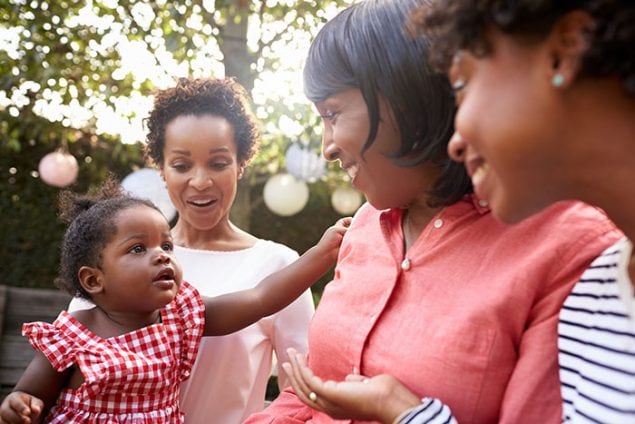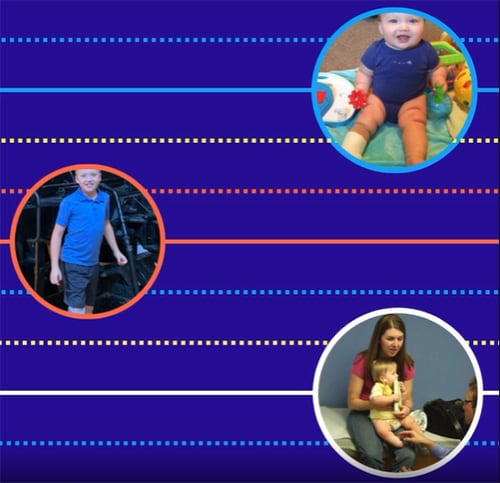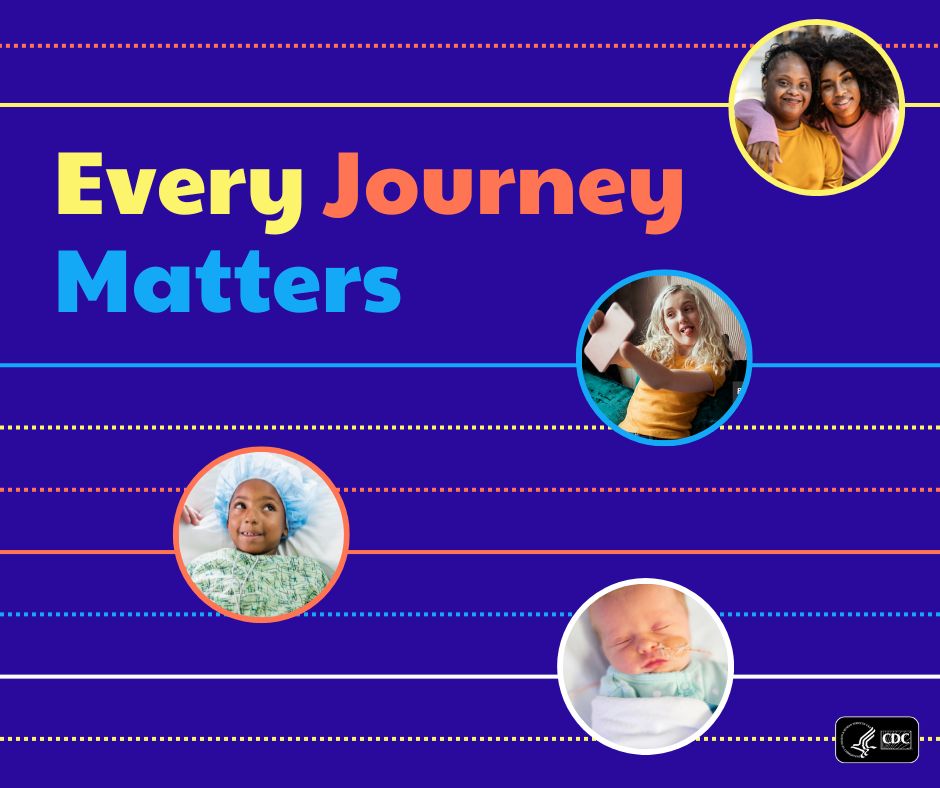Every Journey Matters: Birth Defects Awareness

Every 4.5 minutes a baby is born with a condition that affects the structure or function of their body—collectively, these conditions are referred to as birth defects. They can vary widely in how and where they affect the body, and include things from cleft lip to heart problems. While medical advancements have greatly improved the health and survival of these individuals, many of these conditions are lifelong and require lifelong care.
Achieving the best possible health will look different for different people. No two people living with these conditions are exactly alike. Everyone’s journey is unique, shaped by their specific condition, individual strengths, and the support system in place. What’s important to remember is that a community of support can help people with these conditions no matter what health experiences they are navigating.
This January and throughout the year, join CDC to raise awareness about birth defects to help improve the health of people living with these conditions and widen the available network of support. For parents or caregivers of a child born with one of these conditions, CDC will discuss some actionable tips that may help:
- Seek out and advocate for coordinated care if you can.
- Help your child build skills toward independence as they grow.
- Connect to your local community.
Coordinating Care
While “birth defect” is a medical term, it doesn’t mean that an individual is “defective.” It refers to health conditions that develop in a baby before birth.
In an attempt to be accurate and sensitive, we try to use the specific name of the condition present at birth when possible.
Many children living with conditions such as spina bifida or gastroschisis often require care from a variety of specialists and support services. Children and their parents can benefit from the medical home approach to care—personalized medical care where healthcare providers and families work together—to make sure the medical and nonmedical needs of children and families are met. Coordinated care can lead to an improved patient and family experience, more consistent care, and reduced healthcare costs.
Knowledge empowers parents to make the best choices for their child’s future. Understanding the child’s condition is essential to making informed decisions about their health and well-being. Early identification and early intervention also can help a child receive the right care and resources they need to thrive.
Building Independence
Adolescents and young adults living with birth defects may face unique challenges as they grow older. Navigating the shift from pediatric to adult health care may feel challenging, but early planning and support can empower teens.
For young adults considering independence, making a plan to move from pediatric to adult care, together with caregiving family members and healthcare providers, is a key step. Young adults can also start taking charge of other pieces of their care, from keeping track of medical records to understanding what insurance they have.
Together, families can ensure that individuals with birth defects receive the care and services they need to be as healthy, active, and independent as they can be.
Creating Community
Community plays an integral role in the lives of individuals and families affected by birth defects. For families navigating this journey, connecting with others who share similar experiences can be a helpful source of support, advice, and understanding. This connection may be in person or through internet groups hosted by condition-specific organizations.
Additionally, a community-wide focus on inclusion encourages an environment of acceptance that benefits everyone. Disability inclusion means understanding the relationship between the way people function and how they can participate in society, and making sure everybody has the same opportunities to participate in every aspect of life to the best of their abilities and desires. Every community member can make a difference and play a part to help create a place where everyone knows that they belong.
Steps to Healthy Pregnancy
It is important to understand that birth defects can happen for many reasons, and not all birth defects can be prevented.
However, there are steps you can take to help you and your baby be as healthy as you can be.
- Get 400 micrograms (mcg) of folic acid every day.
- Try to prevent infections.
- Get recommended vaccines.
- Wash your hands.
- Get tested for sexually transmitted infections.
- See a healthcare professional regularly.
- Talk to a healthcare professional about taking any medications.
- Avoid alcohol, smoking, and other recreational drugs.
If you are pregnant, your partner, family, and friends can support you in a variety of ways. Pregnancy is an exciting time. But it can also be stressful. Knowing you are doing your best during pregnancy, including staying healthy, can give you and your baby a great start and give you peace of mind.

